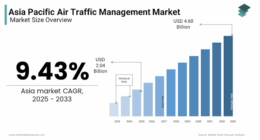Vietnam has taken a bold step to regulate international e-commerce platforms, particularly targeting Chinese online retailers Shein and Temu. If these companies do not register with Vietnam’s Ministry of Industry and Trade by the end of November, the government plans to block their domains and applications. This decision aims to protect local businesses and ensure compliance with trade regulations.
Vietnam’s Move to Regulate Foreign E-Commerce Platforms
Vietnam’s Ministry of Industry and Trade announced it would begin implementing technical measures against Shein and Temu, should they fail to register. This action reflects a growing concern about the influence of foreign e-commerce giants on local markets, particularly due to their low pricing and product quality concerns.
Reasons Behind the Potential Block
The Vietnamese government is motivated by concerns over:
- Market competition: Shein and Temu’s aggressive discounting strategies create tough competition for local businesses.
- Product quality and safety: Questions have arisen regarding the quality and standards of products offered on these platforms.
Deputy Trade Minister Nguyen Hoang Long discussed the issue in a government meeting, highlighting that both companies have already been notified of the registration requirements. Without compliance, the ministry will take action, coordinating with other agencies to implement technical measures.
Shein and Temu’s Impact on the Vietnamese Market
Shein, a popular fast-fashion retailer, has been in the Vietnamese market for some time, attracting consumers with affordable clothing options and extensive product variety. Temu, on the other hand, entered the Vietnamese market just last month, quickly establishing a presence through competitive pricing and broad offerings.
Shein’s Popularity Among Vietnamese Shoppers
Shein’s presence in Vietnam has grown steadily, especially among young consumers. Its popularity stems from:
- Affordable fashion options: Shein offers low-priced items that appeal to budget-conscious consumers.
- Extensive product range: The platform provides a vast array of fashion choices that meet various style preferences.
Temu’s Rapid Expansion in Vietnam
Temu, a subsidiary of Chinese e-commerce conglomerate PDD Holdings, entered the market last month, bringing a wide selection of products at highly competitive prices. Its quick rise highlights the intense competition in Vietnam’s online retail landscape.
Vietnam’s Strategy to Protect Local Businesses
The Vietnamese government’s approach to Shein and Temu signifies a broader strategy to support local businesses and enforce trade compliance. The Ministry of Industry and Trade’s move to regulate these foreign platforms aligns with Vietnam’s efforts to create a fair and competitive market environment for domestic enterprises.
Why Local Businesses Are Pressured by Foreign Platforms
Vietnamese businesses face significant pressure due to:
- Lower pricing strategies: Shein and Temu’s aggressive pricing tactics make it challenging for local retailers to compete.
- Access to extensive inventory: These platforms offer a larger selection of items than many local retailers, attracting a broader customer base.
Ensuring Compliance with Trade Regulations
Vietnam’s decision to potentially block Shein and Temu serves as a warning to foreign companies that they must comply with local trade laws. By requiring registration, Vietnam aims to:
- Ensure accountability: Registered companies can be more closely monitored for trade and product compliance.
- Protect consumers: Registered platforms are more likely to adhere to safety and quality standards, reducing risks for consumers.
What This Means for E-Commerce in Vietnam
The Ministry of Industry and Trade’s actions against Shein and Temu underscore Vietnam’s commitment to enforcing trade laws and maintaining a level playing field in its retail market. This move sends a strong message to other international e-commerce platforms considering entry into the Vietnamese market.
Future Implications for E-Commerce Regulation
Vietnam’s regulatory approach may set a precedent for how other countries address the dominance of large foreign e-commerce players. Key implications include:
- Stronger regulations for foreign companies: Other countries in Southeast Asia may follow suit, requiring registration and local compliance.
- Increased focus on consumer protection: Such regulations can enhance product quality and safety standards for consumers.
Potential Outcomes for Vietnamese Consumers and Businesses
While Shein and Temu provide affordability and variety, stricter regulations may ensure a fairer market for local businesses. Consumers could benefit from better-quality products, while local companies may gain more competitive ground.
Conclusion: Vietnam’s Stand Against Unregistered Foreign E-Commerce
Vietnam’s decision to potentially block Shein and Temu by the end of November highlights its commitment to upholding trade laws and supporting local businesses. With the deadline fast approaching, the outcome will be significant for both foreign platforms and the Vietnamese e-commerce landscape, setting the tone for future regulatory measures in the region.
Ref – Thaiger









